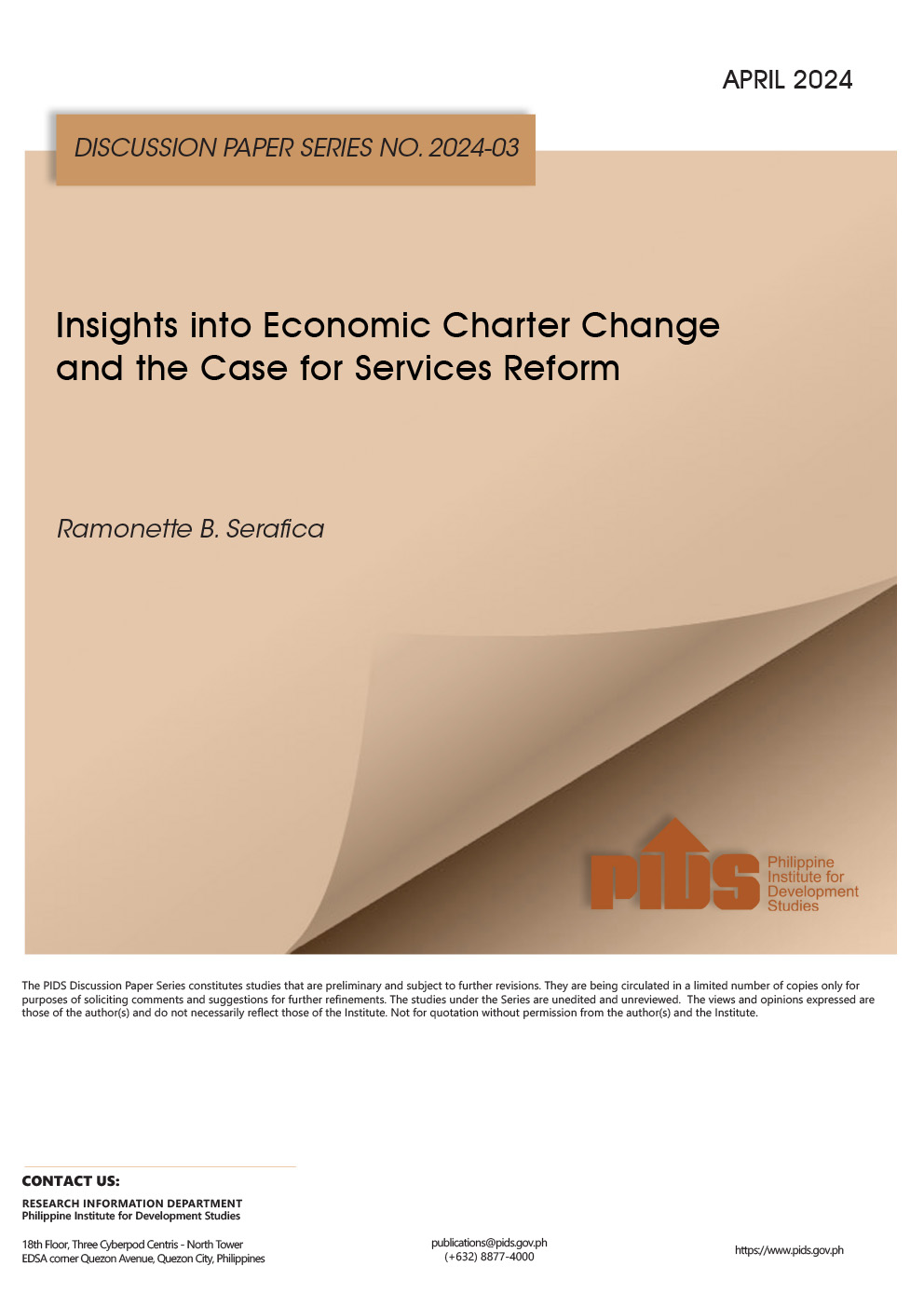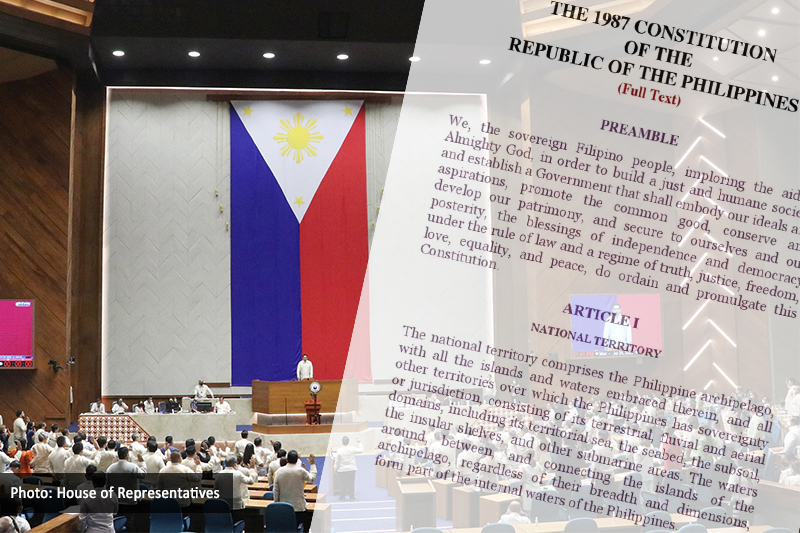THE House of Representatives should exercise great caution in inserting “unless provided for by law” in several sections of the 1987 Constitution, the Philippine Institute for Development Studies (PIDS) said, as a House panel opened deliberations on pending proposals to amend the Charter.
In a position paper, the government think tank said the amendment “unless provided by law” opens up windows for legislative play with regard to concessions to foreign entities.
“The proposed changes are subtle, but the potential impacts are immense. Although still subject to congressional discourse and translation, great caution must be exercised in protecting national patrimony and public interests, while pursuing developmental goals,” the PIDS said.
On the proposed amendments related to natural resources, the PIDS said all the proposed amendments involve a simple clause “unless provided by law.”
“The key point is whether Congress should be given the flexibility to decide on whether the nationality restriction should be lifted or not,” it said.
“Allowing Congress to legislate laws on nationality in the utilization of natural resources is a better way to deal with the issue than by the way of Constitution. Complex technical, social and economic issues related to resource use cannot be resolved by a fundamental law, but it can certainly be addressed by a suitably crafted law with IRR [implementing rules and regulations],” it added.
However, the PIDS said the provision on the ownership or use of public agricultural lands by private corporations, which is limited to corporations 60 percent owned by Filipino citizens, is consistent with the Investment Code of the Philippines, “However, it may need to be reviewed together with proposals to lift the requirement of Filipino citizenship for foreign direct investments.”
On the proposed amendment “unless otherwise provided by law” to education, science and technology, and the service industries, the PIDS said this proposal will give Congress the power to legislate laws that could liberalize the ownership of educational institutions in the Philippines.
The Constitution currently provides that at least 60 percent of educational institutions should be owned by Filipinos, other than those established by religious groups and mission boards.
“Amending the Constitution to provide Congress the power to propose legislation on these matters could be a double-edged sword. On one hand, it gives the government ample time to study the implications of liberalizing the ownership of educational institutions,” it said.
“However, on the other hand, there is also a danger that these proposed measures might suffer the same fate of other constitutionally mandated laws, which languished in the committee level of Congress for decades,” it added.
Meanwhile, the PIDS expressed support for the proposal relaxing the restrictive provisions of the Constitution, saying the Philippines has one of the most restricted environments for foreign investment.
“We support the call for studying areas where the Philippines can relax investment restrictions,” it said.
Consensus on 60-40
During the hearing of the House Committee on Constitutional Amendments on the Charter change proposal, Cagayan de Oro Rep. Rufus Rodriguez said there is already a consensus among members of his panel to lift the 60-40 restriction in the Charter.
“The consensus is we need to lift these restriction limiting foreign investments,” said Rodriguez.
Currently, three pending measures seek to amend certain provisions of the 1987 Constitution. These measures also seek to change the country’s form of government from presidential to federal system.
In House Concurrent Resolution 1, Rodriguez said the clamor and sentiment from a broad cross-section of society seeking a review of certain provisions in the 31-year-old Philippine Constitution, to make it more attuned and responsive to the demands of present conditions, have not only been sustained but affirmed, with more people supporting the platform of President Duterte.
According to Rodriguez, he considered the version of the Consultative Commitee in filing the measure.
The Consultative Committee, chaired by former Chief Justice Reynato S. Puno and its senior member, former Senate President Aquilino Q. Pimentel Jr., was tasked to review the 1987 Constitution. It transmitted to the Office of the President its proposed changes to the Charter in July 2018. Its main provision is to create 18 federated regions with more autonomy to control and utilize their revenues.
Moreover, Rodriguez’s resolution seeks a presidential bicameral-federal system of government.
He also wants the two chambers to convene into a Constituent Assembly to consider the proposed amendments to the 1987 Constitution.



